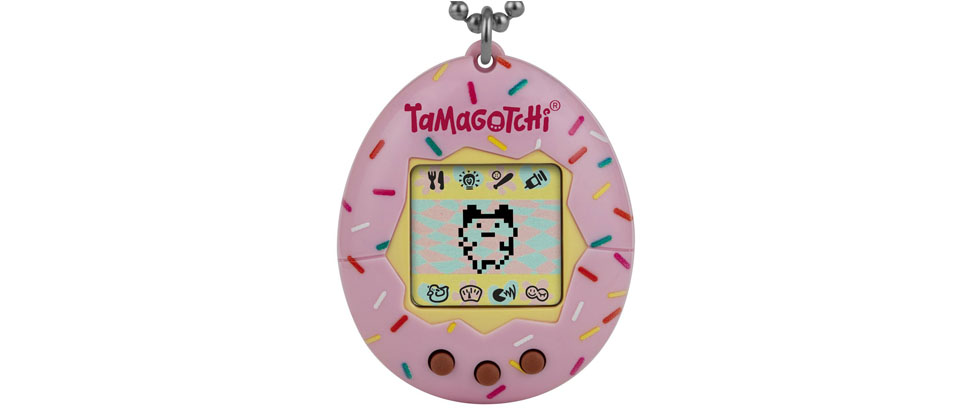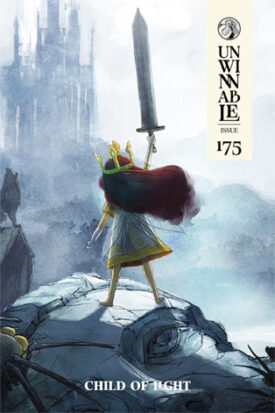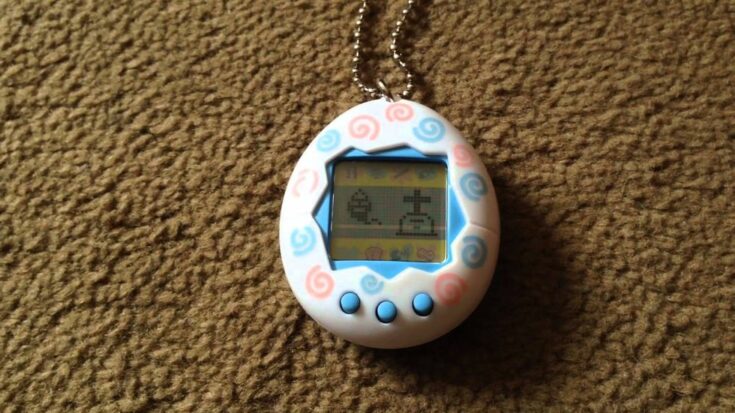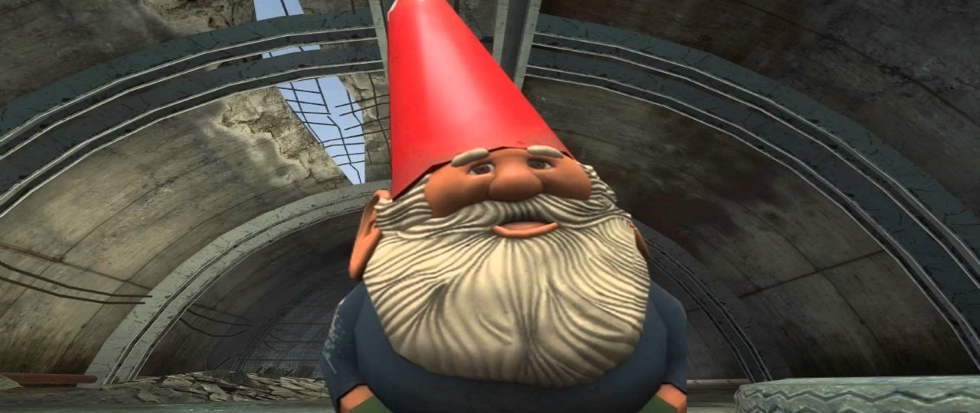
I Have No Mouth and I Must Scream: The Terror of Tamagotchi

This column is a reprint from Unwinnable Monthly #175. If you like what you see, grab the magazine for less than ten dollars, or subscribe and get all future magazines for half price.
———
We are what we’re afraid of.
———
When I was sixteen years old, my high school drama club did a secret Santa gift exchange at the end of our winter play run. I opened my package from my Santa to behold an egg-shaped keychain with a small screen and several buttons. It was the year 2010, and I had been given a Tamagotchi, which had been so far removed from the cultural zeitgeist to have bounced back around as vintage. The Santa responsible quickly revealed herself – the girlfriend of one of my closest male friends. I was surprised by this, because I was under the impression that Meredith really didn’t care for me, given how negatively she had reacted to her boyfriend and I starring opposite each other as a married couple in the play we had just wrapped. But I accepted the toy gladly, with the idea that I must have misjudged her, since she got me such a unique and thoughtful gift, as I was well-known for enjoying videogames.
But oh, how wrong I was. Meredith fucking hated me. Her gift was not a cute piece of nerd nostalgia, but a brutal PsyOp designed to drive me to the brink of despair. And it worked. I spent weeks obsessively tending to the little ‘gotchi, making sure it was fed and that its enclosure was cleaned and that it knew, as best as I could make it understand, that I loved it. The toy immediately took up a substantial portion of real estate in my working mind – I was never far from it, and I checked obsessively to make sure that the digital creature within was healthy. And yet still, within a brief span of a few months, the Tamagotchi died, and I was forced to watch its little angelic form ascend to Bandai heaven with the crushing guilt of my neglect in my chest.

Ever since then, I have been convinced that Tamagotchis have a solid place in the canon of “Distressing and Creepy ’90s toys” right there alongside the Furby I’m still too afraid to put batteries in. But, going even further, never after that point have I been comfortable playing any sort of “pet management” or “care” sim; I never owned a Nintendog, and whenever I see ads for the new self-care/productivity app Finch, where you take care of a small digital bird by drinking water and doing yoga, I feel a little sick to my stomach. But why this reaction?
Fundamentally, I think, the Tamagotchi instilled in me a deep fear of unilateral responsibility over another living thing – if you are given total power and control over the life of something else, you have an utterly terrifying burden. Forget to feed it? Dead. Don’t clean its virtual pen often enough? Dead. The list of ways to kill your ‘gotchi feels exponentially longer and more flexible than the list of ways you have to keep it alive, and that slim margin for error lives rent-free in my head today in the form of an utter refusal to ever own a live plant or an animal that resides inside a cage or tank. My teenage Tamagotchi was a sinner in the hands of a forgetful and flawed God, and nothing has ever made me more afraid than being in that position.
To pull back the scope a little bit and get out from under my own neuroses, we can think about our positionality with Tamagotchi or the care sim of your choice as being the polar opposite of our positionality within most games, especially horror. In the vast majority of our play experiences, we are, in essence, the Tamagotchi: a small and mostly powerless thing screaming into the void of omnipotent and indifferent code. All of our actions within the game are made with the end goal of continuing to survive within the world of the game, but ultimately, we are at the mercy of the game itself whether we live or die. With a Tamagotchi, the tables are turned, and our focus is no longer on our own survival, but the survival of something else, whose life hinges entirely upon the length of our attention spans. We are bestowed not with vulnerability, but great power, and we all know the line from Spider-man about that. And so, I suppose, at the end of the day, the Tamagotchi freaks me out because I am reminded more than ever of my continual obligation to think about and take care of the things for which I am responsible – my cats, my students, my family. No one would die if I occasionally drop the ball in the way the Tamagotchi does if you leave it alone for a day, but it nevertheless presents a constant reminder that we must always be vigilant about our power – over whom we have it, and how we exercise it for moral good instead of negligent indifference.
———
Emma Kostopolus loves all things that go bump in the night. When not playing scary games, you can find her in the kitchen, scientifically perfecting the recipe for fudge brownies. She has an Instagram where she logs the food and art she makes, along with her many cats.




